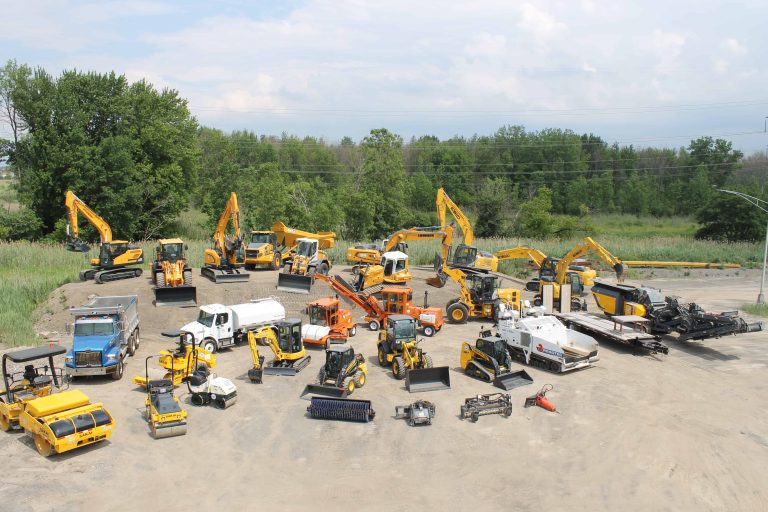Mini Excavator Rental: Compact Machines for Strict Spaces
Mini Excavator Rental: Compact Machines for Strict Spaces
Blog Article
Maximize Your Spending Plan by Comprehending the Costs Connected With Building Equipment Services
Recognizing the full extent of costs associated with building tools rentals is important for optimizing your spending plan. What strategies can be utilized to successfully take care of these prices and ensure a more effective rental experience?
Review of Rental Expenses
When taking into consideration building tools leasings, recognizing the connected prices is critical for reliable budgeting and project preparation. Rental prices can vary dramatically based on a number of factors, including tools type, duration of service, and area. The initial rental cost often shows the tools's market demand and its connected functional capacities, influencing the general expenditure.
Along with the base rental rate, supplementary prices might occur, such as transportation costs, gas surcharges, and upkeep charges. It is important to make up these added expenses to accurately evaluate the complete price of renting out equipment. The rental period can affect prices; longer leasings may certify for affordable prices, while temporary services could sustain greater everyday costs.

Malfunction of Rental Prices
An extensive understanding of rental rates is essential for contractors and task supervisors aiming to optimize their spending plans. Rental prices for building equipment typically are composed of a number of components, consisting of base prices, time-based charges, and use charges.
Base rates are the core costs related to the leasing of the equipment, usually figured out by the type and dimension of the machinery. These rates can differ considerably, affected by variables such as tools need, accessibility, and local market patterns. Time-based charges, which may be daily, weekly, or monthly, offer to accommodate various project timelines and rental periods.
Furthermore, rental prices may consist of use fees, which apply when tools is made use of beyond a defined threshold, making certain that the rental business can make up deterioration. Seasonal need variations can additionally affect rental prices, with peak construction periods usually regulating higher costs.
Moreover, comprehending the rental company's policies pertaining to maintenance and insurance coverage can give additional understanding right into the overall expense framework. By analyzing these elements, contractors can make educated choices, making certain the selection of rental devices straightens with both project requirements and budget plan restraints.
Added Costs to Take Into Consideration
Recognizing the intricacies of additional fees is essential for professionals to manage their overall rental expenses efficiently. Beyond the basic rental rates, various additional charges can significantly impact the total cost of equipment rental. These costs often consist of distribution and pick-up fees, which can vary based on range and logistics included in delivering the devices to and from the job site.
In addition, some rental firms may impose gas additional charges if the devices is returned with less gas than when leased. It is likewise important to be aware of possible cleaning fees, specifically for specific equipment that requires detailed maintenance after use.

Thoroughly assessing the rental contract and making clear these added charges upfront can assist professionals avoid unforeseen costs and make sure that budgets stay undamaged throughout the job lifecycle.
Upkeep and Repair Work Expenditures
Regular repair and maintenance costs are often ignored factors that can considerably affect the overall expense of building and construction equipment leasings. When renting out equipment, it is vital to take into consideration not only the rental charges yet also the prospective expenses linked with keeping the machinery in ideal operating problem.
Many rental companies include fundamental upkeep as component of the rental agreement; however, a lot more considerable repairs or unforeseen malfunctions can cause extra expenditures. It's vital to review the rental contract thoroughly to comprehend what upkeep solutions are covered and what duties drop on the occupant.
Moreover, tools that is not properly maintained can bring about inadequacies on duty website, possibly raising and creating hold-ups project expenses. To alleviate these description dangers, it is a good idea to carry out routine evaluations and maintain open communication with the rental service provider pertaining to any issues that emerge throughout use.
Insurance Policy and Responsibility Prices
Insurance coverage and liability costs are critical parts that can dramatically affect the overall expenditure of building and construction devices rentals (construction equipment rentals). These costs make certain that both the rental business and the client are shielded from prospective economic losses developing from accidents, damages, or theft throughout the rental period

Furthermore, customers should understand any kind of deductibles or exclusions in the insurance plan, as these can affect prospective out-of-pocket expenditures. Understanding the conditions of any kind of insurance coverage is crucial to stay clear of unexpected expenses. Inevitably, budgeting for insurance and obligation costs can aid ensure a smoother rental experience and safeguard versus economic threats associated with building jobs.
Verdict
In conclusion, a thorough understanding of the prices connected with building equipment services is necessary for efficient budget monitoring. Inevitably, notified decision-making regarding tools leasings contributes to the total success of building endeavors.
Rental prices can vary significantly based on numerous elements, consisting of devices type, period of rental, and area (heavy equipment rental). The rental duration can impact prices; longer rentals might qualify for affordable rates, while temporary leasings could incur greater daily fees
By conducting detailed research study and involving with respectable rental companies, specialists can effectively navigate the intricacies of rental pricing, eventually optimizing their financial sources.
Past the conventional rental rates, numerous additional costs can significantly affect the complete price of devices service. Rental companies usually offer responsibility insurance that covers injuries to third events or damages to home, while tools damages insurance can cover the expense of repair services or substitute if the rented out equipment is damaged.
Report this page